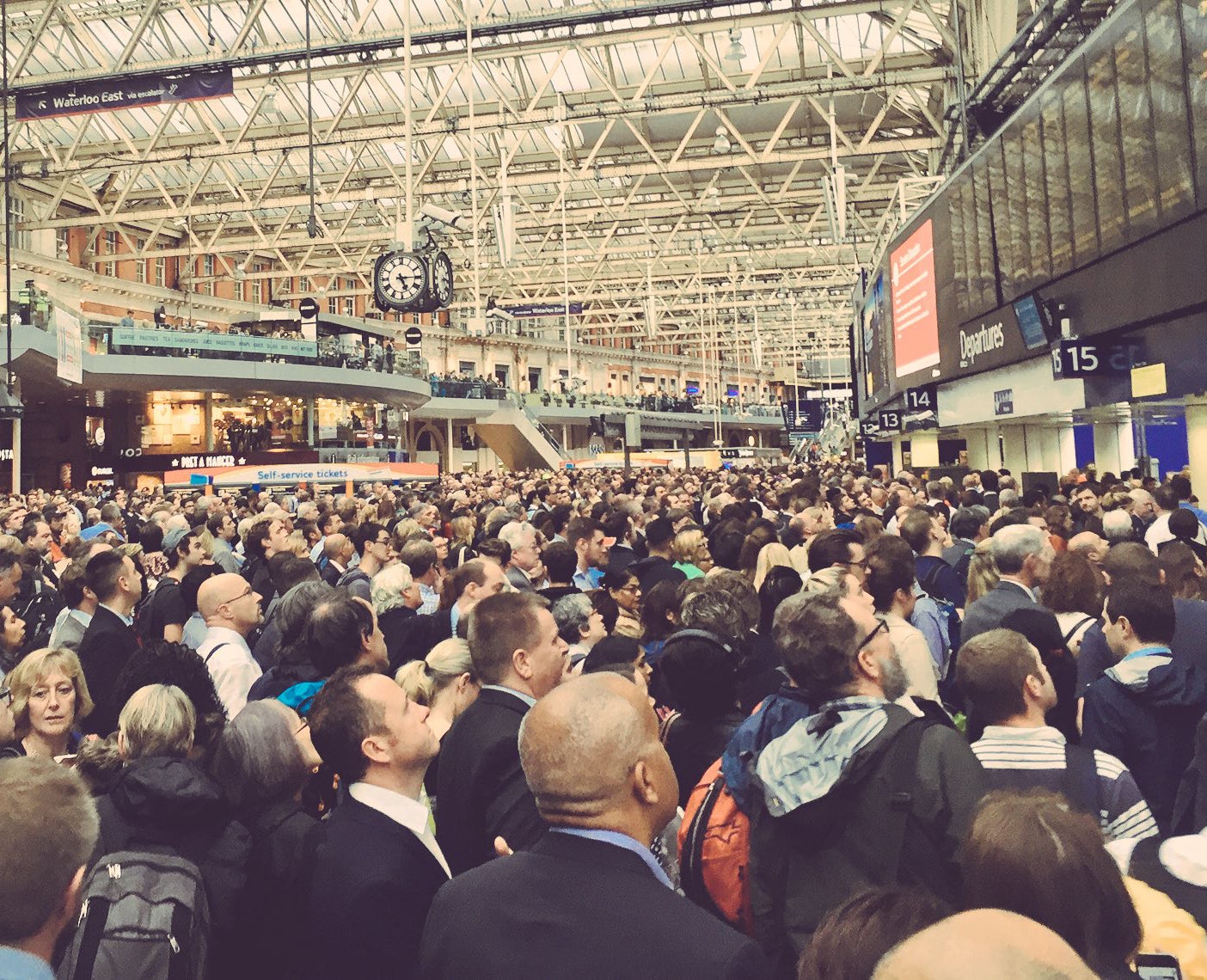Rail companies ‘plan to track your movements to make packed trains pricier’
The Trainline said it is developing technology that monitors how busy the train is and, in the event of overcrowding, reduces the price of later trains to try and get people to wait

The Trainline, a retailer of rail tickets, is developing technology that uses location data from its customers to judge how busy trains are to make packed trains pricier to travel on.
Clare Gilmartin, chief executive operator for the Trainline, has said that the website is using GPS technology installed in its app to update ticket prices.
In fewer than two years, passengers could be offered discounts on later trains to try and discourage them from travelling at peak times, reducing congestion.
“We’re starting to collect information from everyone about where they’re at so we can give them information that can help them with their journey. We want to help train operators manage their yield more effectively, as current ticketing systems do not allow them to do this very well,” Ms Gilmartin told the Telegraph.
But campaigners have said that this kind of pricing would discriminate against people who have less choice about when they travel.
“We object to any moves towards superpeak pricing. Fares are already too high and creating peak-time travel premiums discriminates against people who have less discretion over when they travel,” said Lianna Etkind of the Campaign for Better Transport.
“Overcrowding blights the journeys of too many commuters. Price incentives can help tackle it, but we also need investment in increasing capacity, new rolling stock, and better ticketing including part-time season tickets.”
Caroline Russell, Green Party Member of the London Assembly, said: “Passengers expect train companies to use technology to help provide a better service and encouraging people to travel at less crowded times with fare reductions makes sense.
“However, peak-time travellers must not be penalised with higher fares to make up for the train companies failing to provide sufficient capacity at the busiest times.”
The Trainline sells rail tickets but is not in charge of pricing.
The Government sets the cost using a formula linked to retail price inflation for regulated fares, season tickets and some long distance intercity tickets. In other instances train operators have their own pricing.
However, the Rail Delivery Group, which represents train operators and Network Rail as a whole, said it has no plans to consider a ‘live pricing’ model.
All train operating companies have to follow strict rules on how they display fares to ensure it is clear for the customer.
The Trainline plans to use the same location data to track where customers are delayed to remind them when they are eligible for compensation. It could also soon offer automatic refunds through the app.
There are also moves to reduce paper tickets and railcards on trains by introducing a paperless system.
Jerry Alderson, director of finance and IT at Railfuture, said that a paperless system would have to be careful not to exclude people who did not have a smart phone or were unsure about the technology, to ensure that any everyone had access to pricing plans.
“We strongly support a move to digital tickets but it is important that customers who don't fully understand modern systems are able to opt out of them and pay by traditional methods,” Alderson said.
Join our commenting forum
Join thought-provoking conversations, follow other Independent readers and see their replies
Comments